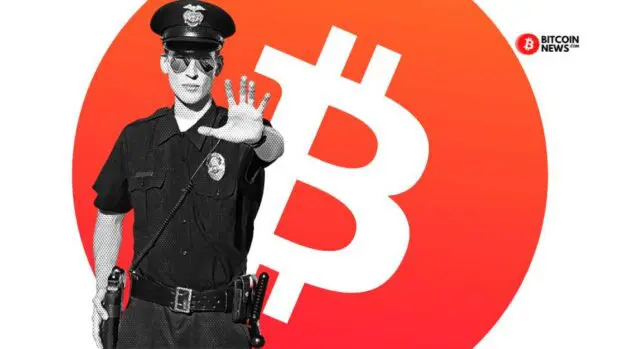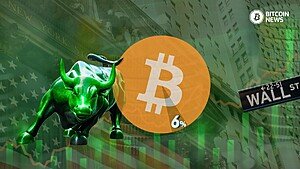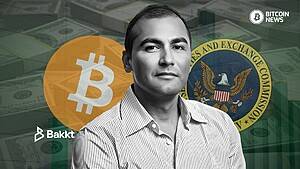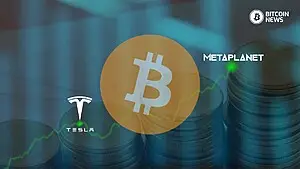This article was originally published by Dominic Frisby on Moneyweek.
The weaponisation of money makes a strong case for buying bitcoin. Recent events have shown how both business and governments can “weaponise” money and shut down dissent. What to do? Buy bitcoin, says Dominic Frisby.
Bitcoin was built in reaction to all the money printing that went on in the wake of the financial crisis.
The Times’ headline “Chancellor on Brink of Second Bailout for Banks” was even embedded into the very first block in the blockchain – the genesis block.
Here was a money system that nobody, whether government or hacker, could print or debase. The rules were set in the code. The inflation rate was clearly laid out. And the system, rather than rely on trust – whether in banks, central banks, payment providers or governments – was based on mathematical proof and computer power.
How money became “weaponised”
Journalist Toby Young, who is associate editor of The Spectator, has, for as long as I’ve known him, been setting up organisations to try and improve people’s lives.
Disappointed with the lowering of standards in schools, he was one of the founders of the first Free School in West London. In 2020 he set up the Free Speech Union to help defend people threatened with cancellation. And his news and commentary website the Daily Sceptic was born in reaction to all the misinformation and censorship, especially by big tech, that emerged after Covid.
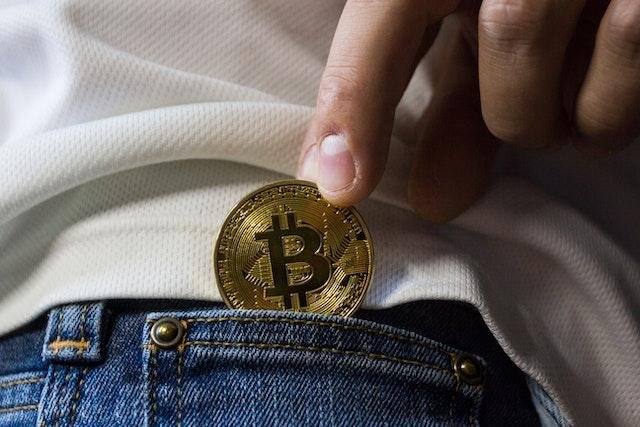
Young’s views are actually pretty moderate. He’s a centre-right, old school Conservative. But his ideological enemies do not like him at all and they work tirelessly to bring him down. He has lost something like five jobs because of what he calls the “offence archaeologists” digging up things he said decades ago, quoting them out of context and then being offended.
Last week, PayPal, out of the blue, closed down his personal account for “breaching its Acceptable Use Policy”. Then, barely a few minutes later, it shut down the account for his news and commentary website, the Daily Sceptic. Then a few minutes after that it closed down the accounts for the Free Speech Union.
This is no small disruption, and it undoes the many hours, days, months and years of hard work his team have put in building up their subscriber bases. About a quarter of the Daily Sceptic’s donor revenue arrives via PayPal and a third of the Free Speech Union’s 9,500 members pay their dues via PayPal, Young says.
Young says, “I did some Googling and discovered that numerous organisations and individuals with dissident political views have had their accounts closed by PayPal recently, particularly on the three issues you’re not allowed to be sceptical about: the lockdown policy and other Covid restrictions, the mRNA vaccines, and the ‘climate emergency’.”
The Daily Sceptic frequently publishes articles on those subjects and the Free Speech Union may have fallen foul of another taboo – defending people who’ve got into trouble with HR departments for expressing their gender critical views.
Business will do what it needs to survive
How is PayPal able to do this without warning? Because it can.
It did the same thing to Wikileaks in 2010. (Unfortunately, this backfired as donors began using bitcoins and the bitcoin Wikileaks received rocketed in value to make Wikileaks a potentially very rich organisation (assuming it managed to hold on to some of them).
PayPal founder Peter Thiel is an outspoken libertarian and probably on the same philosophical side of the argument as Young, but he is also a businessman.
Paypal will do whatever is asked of it in order to survive. You can be sure that, in order to survive as a business and effectively become a challenger bank, especially early in its evolution, it will have had to demonstrate that it could not be used as a vehicle for any kind of illicit activity, especially money-laundering, and this is why it can be so stringent.
But Thiel is no longer Paypal’s CEO and, like so much of big tech, what started out one way is now not on board with the free speech ideals of its founders, as evidenced by all the censorship that goes on.
Money – especially electronic money – is a tool of government
I have long advocated the separation of money and state, but that is not the world in which we live. Today, money is a tool of government. Whether it is suppressing interest rates to boost the housing market, printing money to bail out banks or the entire economy during Covid or freezing the accounts of political enemies (the truckers in Canada, or the entire country that is Russia), finance is being weaponised.
Governments weaponise money because it is an easy tool for them to get the results they want quickly. It’s a lot easier to sanction Russia and freeze it out of the banking system than it is to go to war with Russia. It’s easier to cut off the truckers’ funding that it is to confront them. It’s a lot easier – and quicker – to print the money you need to bail out the banking system than it is to collect it in taxes – which is what rulers from another age would have had to do. It’s a lot easier to suppress interest rates and collect the inflation tax, than it is to impose direct taxes or rein in spending.
The irony of such actions is that, as with Wikileaks, they will accelerate the adoption of censor-free non-state alternatives, of which bitcoin is the most prominent example. The US, by confiscating Russian dollars and freezing it of the banking system, will accelerate the creation of a non-US international system of money to be used by nations, especially Russia and China, that do not want to be beholden to the dollar.
In the long term it may backfire, but in the short term it works: it shuts off the funding taps and creates considerable hardship and inconvenience.
The case for bitcoin
What to do? I use Paypal all the time, as buyer and seller. It’s convenient. But I really should switch to another payment processor. The others may not be as censorious as PayPal, but they will be if pressured, you can be sure of that.
This is a real case of “bitcoin fixes this”. You might be able to make it illegal, but you can’t close it down.
As we move towards central bank digital currencies, this weaponisation of money is going to get a lot more intense.
Your every transaction can be monitored, putting us in the world of Orwellian surveillance states. Certain transactions could simply be outlawed. You might not, for example, be able to buy from or sell to bodies that are not government approved. Taxes and fines can be deducted without your approval.
Central bank digital currencies give huge scope to behavioural economists and the ministries of nudges. You can be goaded into all sorts of decisions you might not otherwise have made. Social credits systems can be imposed. Are you a good citizen? Then you get the favourable rate of interest, good loan deals and other incentives. Do you articulate wrong-thought on the internet? Then you might be given less favourable rates. If you are a really naughty boy, your account might be frozen altogether.
In such a world, and that does seem to be where we are heading, there is a very strong use case for bitcoin. I urge you to own some.

